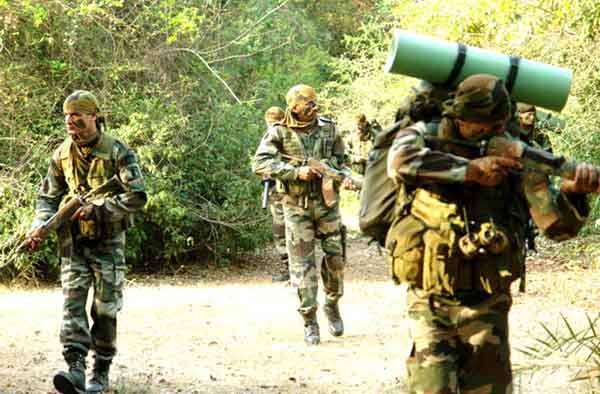
The fact that the Indian Army takes the ethics and moral upbringing of soldiers and officers very seriously is to be seen in its entirety. The Army believes that discipline is the bedrock of professional soldiering and hence preserves that aspect very diligently. ‘Just conduct’ in a ‘just war’ is the basic principle of Indian thought from the times of the Mahabharata. It is axiomatic that in counter-terror and counter-insurgency operations the principles of ‘just conduct’ take primacy that reflects in the Indian Army’s rules of engagements.
Counter Terror operations are by nature complex and need a very restrained application of force since operations take place in close proximity to the citizens of the state. Any moral or legal assessment of an act in a combat environment is tough; a combat situation is an arena of high risk and uncertainty. An arena where the room for error is slim and costs or errors high in terms of your life or the men you are commanding. Indian Army primarily relies on the principle of no room for ‘error of intent’, while ‘error of judgment’ in a combat situation is acceptable. It is in cases of ‘error of intent’ that the Army is ruthless and takes all measures to ensure that just punishment is meted, that is the basic framework of military discipline.
The recent case of the return of bodies of three youth of Rajouri from Baramulla after confirmation of their identity through DNA tests demands answers. The sequence of events shows that on 17th July the Army had initially stated that unidentified terrorists had been killed in an encounter at Amshipura in South Kashmir. The locals and the police failed to identify the terrorists, which had raised a red flag. The police after due process buried them as unidentified terrorists after taking DNA samples. Nearly 20 days later social media reports indicated that the three unidentified terrorists were actually laborers from Rajouri, who had come to Amshipura for work. The Army was quick to take cognizance of the inputs and Srinagar based HQ 15 Corps announced an investigation into the conduct of the operation. As is the norm, the Army conducted its internal inquiry, while concurrently the JKP took action to use the DNA samples to establish identity.
The Army kept the public informed about the progress of its investigations and on 18 Aug 20 issued a press release stating that the internal inquiry had found the three unidentified terrorists to be the youth from Rajouri. Army also informed that it had found prima-facie evidence of wrongdoing in the conduct of the operation. It amplified to say that the mandate of AFSPA and the do’s and don’ts of the Chief of Army Staff may have been exceeded. Accordingly, the next step in the military process the ‘Recording of Summary of Evidence’ was ordered.
The police also informed that the DNA samples had confirmed the identity of the youth and thereafter facilitated the transfer of the bodies to Rajouri as per the request of the families. The loss of the families has had some closure, while the battle for justice continues. The visit of the LG of UT of J&K to the families of the three youth is a good indication of the government’s commitment to ensure that justice is served.
The police and the Army have stated that the role of the three killed in the operation is under investigation, it is premature to assume complete innocence of their part due to actions that raise suspicion about their activities and intent. Concurrently the role of the civilian sources involved in the operation is being questioned. Justice will be truly served only if all aspects of the truth are revealed and acted upon.
The admission of evidence of wrongdoing by the Army is seen as an opportunity for propaganda by vested interests. Followers of the process of law understand that the process requires diligent effort to collect evidence, which is the only factor that can establish truth in a court of law. Evidence is a singular need for justice to be served, without evidence we can only have media trials that are neither desirable nor support the process of law. Media, or rather in this case the social media has done well to bring to fore the suspicions on the operation. Now the media and the public have to wait for the law enforcement agencies to follow the due process. The speed of actions so far shows that all agencies are moving with due urgency to reveal the truth, the security agencies will do well to keep the public informed about the progress in the investigation.
The case is among the few that test a fighting force’s commitment to ethics and values. Senior commanders in the Army have taken the ‘tougher right’ to start the process in the right direction. This will reinforce the core values of the Indian Army and stand good for the ethos in times to come.
Courtesy: https://www.claws.in/the-indian-army-code-of-conduct-amshipura-and-beyond/




